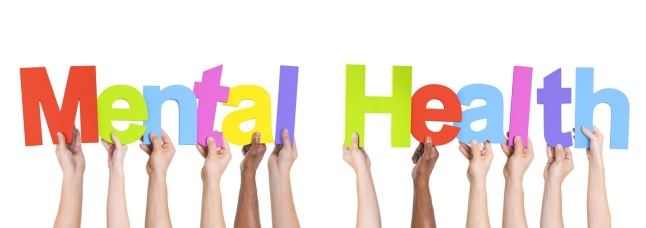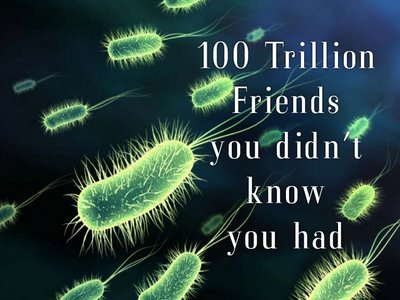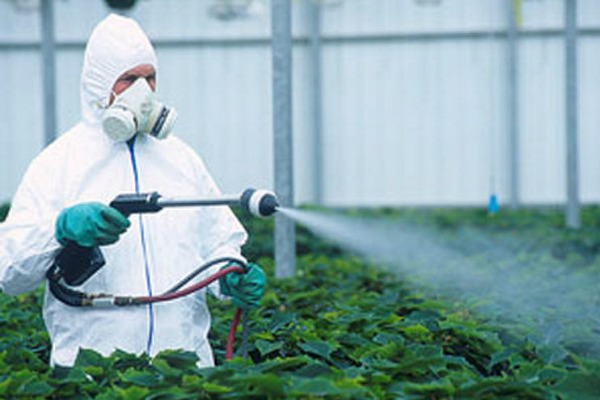
I just can’t stop talking about the importance of healthy gut bacteria. I borrowed the title for this article from a book I have been reading by Alanna Collen. In it she discusses the importance of gut bacteria, also known as your microbiome. The title refers to the percentage of our bodies that are actually human cells. Of all the cells we walk around with each day, only 10% by number are actually our skin, blood, organs, tissues, etc. The rest are mostly bacteria with some fungi and viruses. Slowly science is realizing just how important all these bugs in and on our bodies really are. In order for us to evolve, we have had to hire out some of our essential functions. These bacteria help break down plant fibers, fight off bad bacteria, create vitamin B12 and K and shape the intestinal wall just to name a few. And in return we give them a nice place to live with lots of food. But what happens when this symbiotic relationship gets disrupted?
Most people think their gut is only for digesting food, but in fact the digestive tract is the central area for the nervous, hormonal and immune systems. This means that an imbalance in this area can have far reaching, and seemingly unrelated, effects throughout the body.
Improper or lacking gut bacteria (dysbiosis) are associated with digestive disorders such as irritable bowel syndrome, irritable bowel disease, Crohn’s disease, celiac disease and food intolerances. Any of these problems can cause debilitating symptoms. Several autoimmune diseases are also associated with dysbiosis. These include rheumatoid arthritis, MS, Type I diabetes and lupus. 
Our digestive tract and our little bacterial friends play a role in regulating our mood. One of the functions of gut bacteria is to make neurotransmitters such as GABA. GABA is the calming chemical in the brain that decreases anxiety and helps relieve anxious depression. Therefore a lack of gut bacteria can lead to anxiety and depression. Gut bacteria are also involved in other mental health disorders. A recent study found that supplementing a baby with probiotics (supplement form of good gut bacteria) decreased the incidence of ADHD when these children became teenagers.
Dysbiosis is also associated with autism, allergies, eczema, asthma, some cancers and obesity. And these are just the health problems we know of so far. Research is only just beginning to understand the importance of the bugs that live in our digestive tract. Scientists keep looking for a genetic cause for diseases because we have the technology to change some genes, at least for the coming generation. But most of these disorders didn’t exist 100 years ago. Human genetics have not changed that fast. So that means something must have changed in our environment and lifestyles.

How to Keep Your Microbiome Happy
There are some things that disrupt our microbiome that we don’t have much control over. Caesarean sections save baby’s lives but this means that they don’t get exposed to mother’s bacteria in the vaginal canal at birth. Formula has also saved lives but formula does not expose the baby to mom’s healthy bacteria. When antibiotics are used correctly they save many lives but these can wipe out a lifetime of healthy gut bacteria leaving a very upset micro biome. But there are many things you can do yourself to keep your little bacteria friends happy.
Eat fibre. Avoid sugar. Eat lots of fruit and veggies (with the skin on), legumes and whole grains such as brown rice and wholemeal bread. This provides great food for your microbiome as well as making sure everything keeps moving. Gut bacteria thrive on a variety of fibre so try not to eat the same things every day. Bacteria don’t like it when stool sticks around too long so make sure you eat fibre every day. Sugar only helps to feed the bad bacteria so try to limit your intake. Read here for more information on the effects of sugar on your body.
Don’t eat preservatives. Preservatives are designed to kill and stop the growth of bacteria, and that is just what they keep on doing inside your body. These pesky chemicals have only been in our diet for less than a century and they are wreaking havoc on our gut bacteria. Avoid products with preservatives listed. ‘Flavouring’ and ‘colouring’ are full of preservatives, which might not be listed separately on the label so avoid any products with these. Product labels only have to show ingredients that are higher than 10 parts per million, but many preservatives are very effective at even this low level. Keep in mind that food manufacturers are out to make money so they may lie on their labels (even if it is illegal). So if there is a product that doesn’t go off within a few days, don’t eat it!

Buy organic from the dirty list. Pesticides are also designed to kill. Organophosphates have been banned in Europe and restricted in the US but are still widely used in Australia. These pesticides are linked to reduced IQ, weight gain, Type II diabetes, Parkinson’s and Alzheimer’s. Children under 7 years old do not have the enzyme required to excrete these chemicals from their little bodies so it just builds. The ‘dirty’ foods with the highest pesticide residues in Australia are, in order, apples, wheat, strawberries, pears, grapes, lettuce, nectarines, peaches, and tomatoes. To save money, buy these foods organic and buy foods from the ‘clean’ list conventional. The ‘clean’ foods are onions, sweet corn, pineapple, asparagus, sweet peas, mango, eggplant, kiwi and cabbage. Here is a link to the full American list for 2016. This list is updated every year.
If you are worried about the state of your gut bacteria or already have symptoms of an imbalance, taking a probiotic supplement may help, but you should seek advice from your local naturopath to make sure you get a good quality one.
The bacteria in your gut are very important to your health and longevity. Be nice to them and they will be nice to you.
Check out my Healthy Heathcote 90-Day Challenge video about the importance of gut bacteria:

Very informative post! I am currently dealing with my own gut health issues, I appreciate your insight!
LikeLike
Thanks! I’m glad you enjoyed it. I hope you find a solution to your problems soon. I would highly recommend seeing a naturopath if you haven’t already.
LikeLiked by 1 person